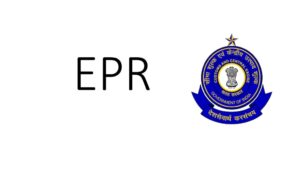Table of Contents
INTRODUCTION
EPR stands for Extended Producer Responsibility, It is the responsibility of every producer producing electronic or electrical equipment to move/shift the e-waste to an authorized dismantler or recycler to make sure environmentally sound management of such waste.
The EPR Certificate is compulsory for Indian Manufacturers or Imported products for E-waste management. the authorization of Extended Producer Responsibility is provided by CENTRAL POLLUTION CONTROL BOARD under the Ministry of Environment, Forest and Climate Change, Government of India.
CPCB, the main responsibility is to renew, refuse, or grant EPR and provide certification to producers of electrical or electronic equipment.
TYPE OF EPR AUTHORIZATION
E-WASTE MANAGEMENT
PLASTIC WASTE MANAGEMENT
BATTERY WASTE MANAGEMENT
WASTE TYRES MANAGEMENT

Benefits Of EXTENDED PRODUCER RESPONSIBILITIES Certificate
- Promote Reuse of Product: The EPR plan manages to intensify the promptitude and ease of dissembling the products or items for the process of reuse and recycling. Hence, you can reuse the product or item without affecting the need for new raw materials.
- Ensure Sustainable Development: EPR promotes or encourages the conservation of natural resources, decreases the quality of waste, eliminates pollution, etc. All these summarise sustainable development, which is vital for customers & manufacturers.
- Impact of Good Environment: EPR Certificate reduces the dependence on other waste disposal methods like burning (these produce toxic gases like formaldehyde, furans, dioxins, etc.,) which is dangerous or harmful for human beings when inhaled. Despite affecting humans, it also affects the land structure. Further, EPR also reduces the efforts of local municipalities in maintaining the waste physically & financially because EPR confirms proper recycling and refurbished products or their parts.
Is It Mandatory To Get an EPR Certificate In India?
For importers or manufacturers, it is compulsory to obtain the EPR Certificate in India to keep e-waste under control. But if importers or manufacturers fail to acquire the same, they won’t be able to operate in India.
Documents Required For Obtaining EPR Certificate
Documents Required for OPC/LLP/Partnership Firm/Sole Proprietor:
- GST Certificate;
- IEC (Import Export Code);
- To demonstrate the site ownership, submit the lease proof or rent;
- Excel sheet comprising details of imported products
- Authorized signatory KYC or Sole Proprietor.
Documents Required for Public or Private Limited Company
- MOA (Memorandum of Association);
- PAN Card of the company;
- IEC (Import Export Code);
- To demonstrate the site ownership, submit the lease proof or rent;
- Excel sheet comprising details of imported products
- Board Declaration for Authorised Signatory;
- CIN or Certification of Incorporation.
How To Get An EPR Certificate?
- The application form will be filled by giving general information like name, address, and detail of electric & electronic equipment;
- Information regarding the evaluation of e-waste generation of Electronic or Electric Equipment item-wise needs to be provided, comprising estimated target collection of the forthcoming year;
- Information regarding the overall strategy to attain EXTENDED PRODUCER RESPONSIBILITIES and obligations must be provided, inclusive of targets;
- If applicable, the details regarding the reduction of hazardous substances compliance, via self-declaration and another declaration that it holds the technical documents on RoHS will be given for verification as and when needed;
- Further, the application form will be submitted along with the documents;
- After the submission of the application form, CPCB will examine the application form;
- If required by CPCB, the extra details will be submitted;
- An EPR Certificate will be obtained from the CPCB.
IN SOME CASES AUTHORIZATION IS NOT REQUIRED
MUST READ
SABARIMALA SRI AYYAPPA TEMPLE CASE
IS PROSTITUTION LEGAL IN INDIA
LIST OF CHIEF JUSTICES OF INDIA (1950-2023)
DIFFERENCE BETWEEN JUDICIAL CUSTODY AND POLICE CUSTODY
YOGI ADITYANATH CHIEF MINISTER OF UTTAR PRADESH
